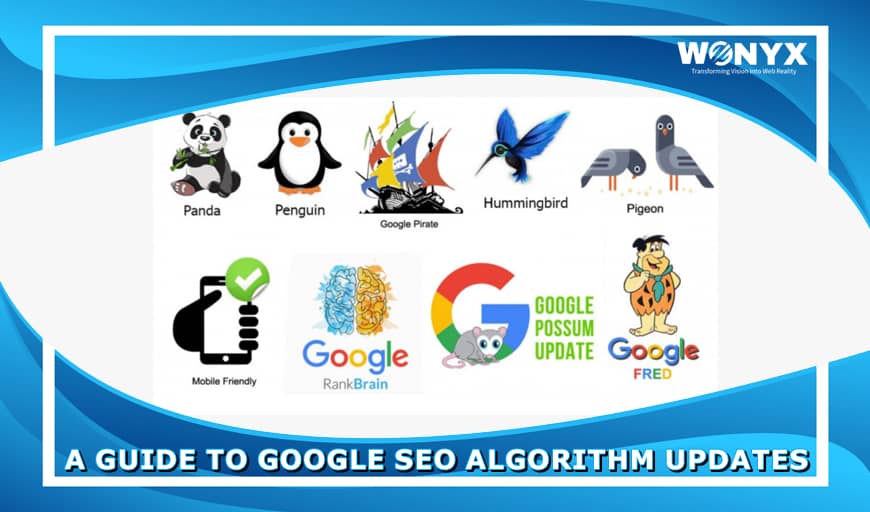
Google’s search algorithm is at the heart of the internet, shaping how websites are ranked and ensuring users receive the most relevant and valuable results. To maintain the integrity of its search results, Google regularly updates its algorithms. These updates can have a significant impact on website rankings and SEO strategies. In this guide, we’ll explore the most notable Google SEO algorithm updates and how they have influenced the world of search engine optimization.
1. Google Panda (2011)
Focus: Content Quality
The Panda update was a game-changer, targeting low-quality and duplicate content. Websites with thin, spammy, or plagiarized content saw their rankings drop significantly. This update emphasized the importance of high-quality, original content and improved user experiences.
2. Google Penguin (2012)
Focus: Link Quality
Penguin honed in on link quality and penalized websites using manipulative link-building tactics like link farms and excessive keyword-rich anchor text. It emphasized the need for natural and relevant backlinks in SEO strategies.
3. Google Hummingbird (2013)
Focus: Semantic Search
Hummingbird introduced the concept of semantic search, aiming to better understand user intent and context. It rewarded websites that answered questions effectively and provided valuable, context-rich content.
4. Google Mobile-Friendly Update (2015)
Focus: Mobile Usability
With the increasing use of mobile devices, Google introduced this update to prioritize mobile-friendly websites in mobile search results. Websites with responsive designs and mobile usability received a boost in rankings.
5. Google RankBrain (2015)
Focus: Machine Learning
RankBrain introduced machine learning into Google’s algorithm. It helps interpret complex, ambiguous search queries and delivers more relevant results. It reinforced the need for user-focused, high-quality content.
6. Google Medic (2018)
Focus: E-A-T
The Medic update emphasized Expertise, Authoritativeness, and Trustworthiness (E-A-T) of websites, particularly in YMYL (Your Money or Your Life) niches. It underlined the importance of establishing credibility and expertise in content.
7. Google BERT (2019)
Focus: Natural Language Processing
BERT (Bidirectional Encoder Representations from Transformers) improved Google’s understanding of the context of words in search queries. It led to more accurate and context-aware search results, affecting content optimization and keyword strategies.
8. Google Core Updates (Ongoing)
Focus: Broad Improvements
Google frequently rolls out core updates to refine its algorithm. These updates can impact a wide range of ranking factors. Staying informed and continually improving content quality and user experiences are essential for maintaining visibility in search results.
9. Google Page Experience Update (2021)
Focus: User Experience Metrics
This update emphasized Core Web Vitals, focusing on loading performance, interactivity, and visual stability. It highlighted the importance of delivering a smooth, user-friendly experience to maintain or improve rankings.
10. Google MUM (Multitask Unified Model) (2021)
Focus: Advanced Search Understanding
MUM represents Google’s commitment to further understanding complex search queries and providing richer, more accurate search results. It emphasizes the need for comprehensive, well-structured content.
To succeed in the ever-evolving landscape of Google SEO, website owners and SEO professionals must adapt to these updates. The common thread among these changes is a commitment to delivering valuable, user-centric experiences. By staying informed, focusing on high-quality content, and prioritizing user satisfaction, websites can thrive in the dynamic world of Google’s search algorithms.
